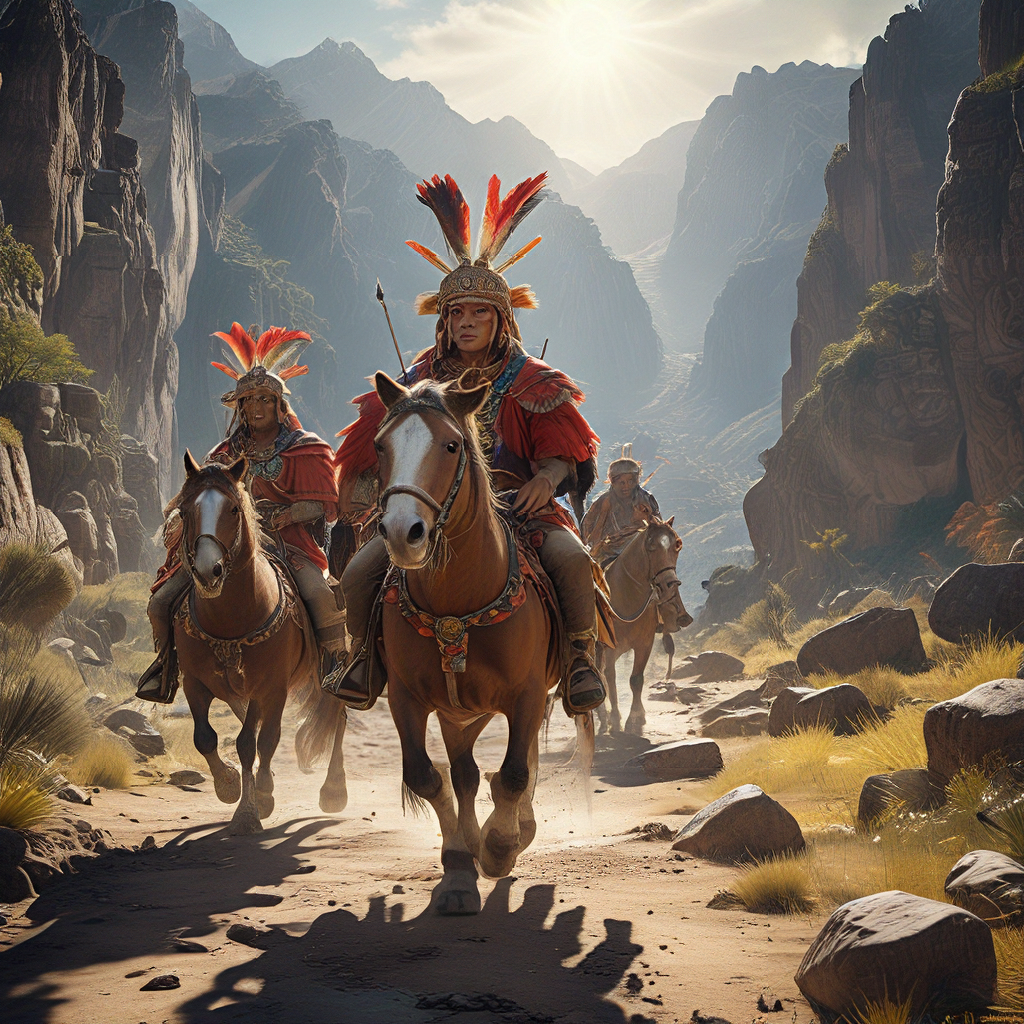Quetzalcoatl and the Concept of Balance: The Feathered Serpent’s Role in Maintaining Cosmic Harmony
I. Introduction
Quetzalcoatl, often referred to as the Feathered Serpent, is one of the most important deities in Mesoamerican mythology, particularly within the Aztec and Toltec cultures. This god is multifaceted, embodying elements of wind, air, and knowledge, and his stories reflect deep philosophical concepts that were vital to the societies that revered him.
In ancient Mesoamerican cosmology, balance was of paramount importance. The universe was viewed as a delicate equilibrium of opposing forces, and maintaining this balance was crucial for the survival of both humanity and the cosmos. The purpose of this article is to explore the intricate role Quetzalcoatl played in maintaining cosmic harmony and how his influence extends beyond mythology into contemporary understandings of balance.
II. The Mythos of Quetzalcoatl
The origins of Quetzalcoatl can be traced back to various Mesoamerican cultures, including the Olmec, Toltec, and Aztec civilizations. Each culture contributed to the rich tapestry of stories surrounding this deity. In the Aztec pantheon, he was revered not just as a god but as a cultural hero who introduced essential knowledge and practices to humanity.
Quetzalcoatl is often depicted as a serpent adorned with feathers, symbolizing the connection between the earth (the serpent) and the heavens (the feathers). His attributes include:
- Wisdom and intelligence
- The wind and the sky
- Art and culture
His dual nature as both a god of wind and a god of knowledge emphasizes the importance of balance between different realms—spiritual and temporal, chaos and order.
III. The Concept of Balance in Mesoamerican Philosophy
In Mesoamerican philosophy, balance is defined as the harmonious coexistence of opposites. These opposites are seen as necessary for the flow of life and the continuation of the cosmos. Key aspects of this balance include:
- Light and Darkness: Both are essential for growth and existence.
- Life and Death: The cyclical nature of life is a fundamental concept.
- Order and Chaos: Order brings stability, while chaos allows for change and renewal.
The cyclical nature of time is also a critical aspect of Mesoamerican cosmology. The concept of time is not linear but rather cyclical, with events and seasons recurring in a predictable rhythm, which reflects the balance of nature.
IV. Quetzalcoatl as a Mediator
Quetzalcoatl’s role in the creation myth is a prime example of his function as a mediator. He helped establish order from chaos, shaping the world and creating humanity. His interactions with other deities, such as Tezcatlipoca, often highlight the tension between opposing forces, illustrating the need for balance.
Examples of Quetzalcoatl mediating human affairs include:
- Providing knowledge and culture to mankind, teaching them the arts and sciences.
- Interceding on behalf of humans to the gods, ensuring they receive the necessary sustenance.
- Guiding the creation of rituals that emphasize the importance of balance in daily life.
V. Quetzalcoatl and Agriculture: A Symbol of Sustenance and Growth
Agriculture was the backbone of Mesoamerican societies, and Quetzalcoatl’s influence in this area cannot be overstated. He was often associated with agricultural fertility and the cycles of planting and harvesting.
Key aspects of Quetzalcoatl’s influence on agriculture include:
- Teaching agricultural practices that respected the land and its cycles.
- Representing the balance between humanity and nature, emphasizing sustainable practices.
- Signifying the relationship between the gods and the fertility of the earth.
Through his teachings, Quetzalcoatl helped establish a balance between nature and humanity, ensuring that resources were used wisely and sustainably.
VI. Rituals and Practices Related to Quetzalcoatl
Honoring Quetzalcoatl involved various rituals that reflected the importance of maintaining cosmic balance. These rituals were designed to appease the gods and ensure a harmonious relationship between the divine and human realms.
Key rituals included:
- Offerings: Food, flowers, and incense were commonly offered to Quetzalcoatl.
- Music and Dance: Rituals often featured music and dance, creating a spiritual atmosphere that fostered connection with the divine.
- Artistic Expressions: Art was a crucial medium for honoring Quetzalcoatl, with murals and sculptures depicting his attributes and stories.
These practices played a significant role in maintaining cosmic balance and ensuring the favor of the Feathered Serpent.
VII. Contemporary Interpretations of Quetzalcoatl’s Balance
The legacy of Quetzalcoatl extends into contemporary spirituality and cultural practices. Today, many people draw inspiration from his teachings about balance and harmony.
Modern interpretations include:
- New Age Spirituality: Quetzalcoatl is often seen as a symbol of wisdom and enlightenment in various spiritual movements.
- Ecological Perspectives: The concept of balance resonates in discussions about sustainability and environmental stewardship.
- Social Harmony: Quetzalcoatl serves as a reminder of the importance of balance in social dynamics, advocating for cooperation and understanding.
His symbolism remains relevant as societies grapple with contemporary challenges, reminding us of the need for harmony in our lives.
VIII. Conclusion
Quetzalcoatl’s significance in maintaining cosmic harmony is profound and multifaceted. As a deity who embodies balance, his teachings and stories reflect the intricate interplay of opposites that define Mesoamerican cosmology.
His enduring legacy invites us to reflect on the importance of balance in our own lives and in the world around us. As we navigate the complexities of modern existence, we can draw inspiration from the Feathered Serpent and strive to integrate the principles of harmony and balance into our daily practices.
By appreciating Quetzalcoatl’s teachings, we not only honor a vital aspect of ancient Mesoamerican culture but also embrace the timeless wisdom that can guide us toward a more harmonious existence.



